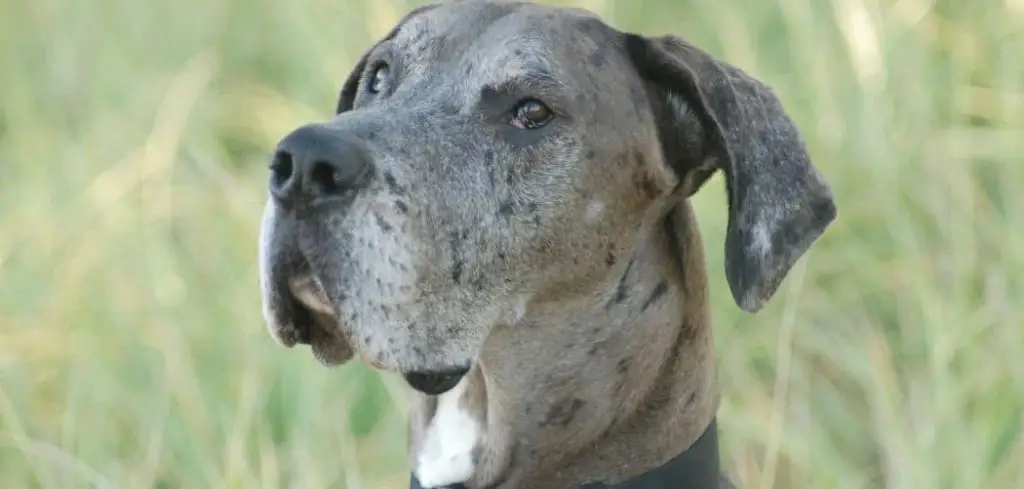When your dog starts avoiding everyone and turns down food, it’s easy to feel helpless. Isolation and loss of appetite can both be subtle signs of discomfort — or early red flags of serious illness.
We outline the common causes of why your dog is isolating himself and not eating, what you can do at home, and when to seek veterinary help.
Dog Isolating Himself and Not Eating — Why It Happens
Dogs isolate themselves and refuse food for both physical and emotional reasons. Pain, illness, digestive upset, anxiety, aging, or even toxin exposure can make your dog retreat from you and skip meals.
These behaviors often appear together because many health conditions affect both energy levels and appetite.
Emotional stress, neurological disorders, or infections may also cause your dog to withdraw and stop eating.

Dog Isolating Himself and Not Eating: Common Causes
Pain or Injury
Dogs in pain often hide instinctively, especially if they feel vulnerable. A pulled muscle, joint issue, or internal injury might not show outward signs right away.
You may notice your dog avoiding stairs, flinching when touched, or shifting their weight awkwardly. Pain also impacts appetite, leading to skipped meals and lethargy.
If your dog has recently fallen, had a rough play session, or is getting older, hidden pain is a strong possibility.
Digestive Upset
Even a mild case of nausea or bloating can make your dog retreat and skip food. Stomach discomfort may be caused by eating something spoiled, parasites, inflammation, or more serious conditions like pancreatitis.
If your dog has also vomited, passed diarrhea, or is licking their lips frequently, their stomach could be the culprit.
Dogs with nausea often isolate because they’re feeling vulnerable and want quiet while their body settles.
Infections or Fever
Bacterial or viral infections can leave dogs feeling weak, achy, and withdrawn. Fever may cause chills or disorientation, while some illnesses like leptospirosis or tick-borne disease also affect appetite.
Look for other subtle clues: warm ears or nose, excessive sleeping, labored breathing, or changes in gum color. Your dog may be hiding to rest, regulate body temperature, or avoid stimulation while they recover.
Read more: Dog Acting Weird and Not Eating (What’s going on?)
Emotional Stress or Anxiety
Dogs are sensitive to changes in their environment. A move, loud noises, new pets, visitors, or owner stress can cause a dog to shut down. Some dogs cope with stress by retreating to a quiet area like a closet or under furniture.
When overwhelmed, they may lose interest in food or develop gastrointestinal upset from the anxiety alone.
Watch for signs like tucked tails, dilated pupils, or shivering. Dogs with noise phobias may isolate during storms or fireworks, even if they seemed fine earlier in the day.
Cognitive Dysfunction (Senior Dogs)
Older dogs sometimes isolate because they’re confused or disoriented. Canine cognitive dysfunction, similar to dementia, may cause them to forget routines, wander aimlessly, or hide.
These dogs might not recognize their food, forget mealtimes, or become anxious and hide more frequently.
If your senior dog seems withdrawn and is eating less, cognitive decline should be considered.
Poisoning or Toxin Exposure
Ingesting toxic substances (e.g., chocolate, medications, houseplants, or antifreeze) can quickly lead to gastrointestinal upset, neurological signs, or organ distress.
Dogs may hide because they feel sick or confused, and stop eating due to nausea.
This is an emergency. If your dog is suddenly hiding, vomiting, drooling, shaking, or has pale gums, contact a vet immediately.
What to Do If Your Dog Is Isolating Himself and Not Eating
Start by observing your dog quietly without forcing interaction. Check their body for signs of injury, swelling, or pain.
Offer bland, tempting food like boiled chicken and rice in a calm setting. If they show no interest after several hours, especially if it’s unusual behavior, it’s time to be concerned.
Reduce environmental stress where possible. Lower noise levels, offer a cozy resting spot, and keep routines predictable.
Encourage hydration by offering water with a bit of low-sodium broth or ice cubes. Dehydration can worsen illness and loss of appetite.
If your dog improves within a day and returns to normal eating and behavior, the issue may have been minor. But continued hiding or skipping meals warrants a vet visit.
When to Call or Visit Your Vet
Don’t delay veterinary care if your dog:
Has not eaten in 24 hours or more
Hides and shows signs of pain (yelping, limping, flinching)
Vomits, has diarrhea, or refuses water
Appears lethargic, weak, or disoriented
Has swollen abdomen or pale gums
Is a senior dog suddenly acting withdrawn
Your vet will run a physical exam and possibly lab tests to check for pain, infection, internal issues, or neurological changes. Early diagnosis can greatly improve outcomes.
Read more: Dog Hiding in Closet and Not Eating (Why it’s more than just a quirk)
Key Takeaway
Dogs often isolate and stop eating when they’re in pain, sick, or emotionally distressed. This combination of behaviors can signal anything from mild discomfort to serious illness.
Watch closely, offer gentle support, and don’t hesitate to involve your vet if symptoms persist. Early intervention can make all the difference when your dog is telling you something’s wrong.
